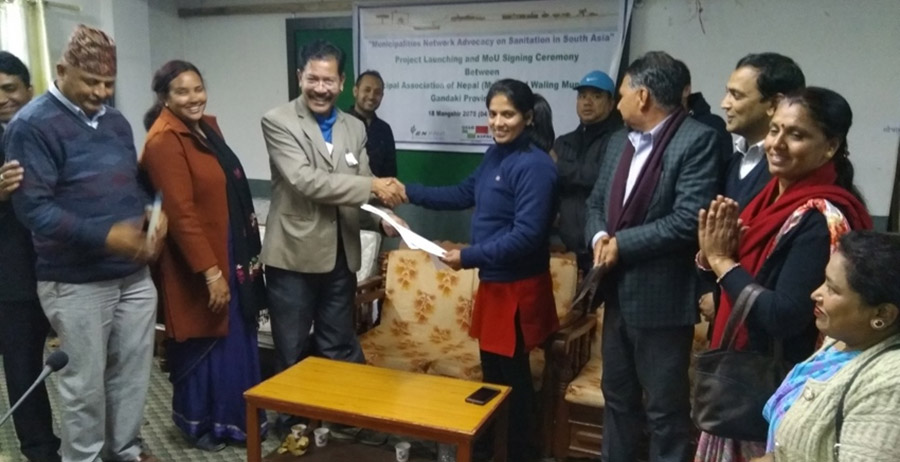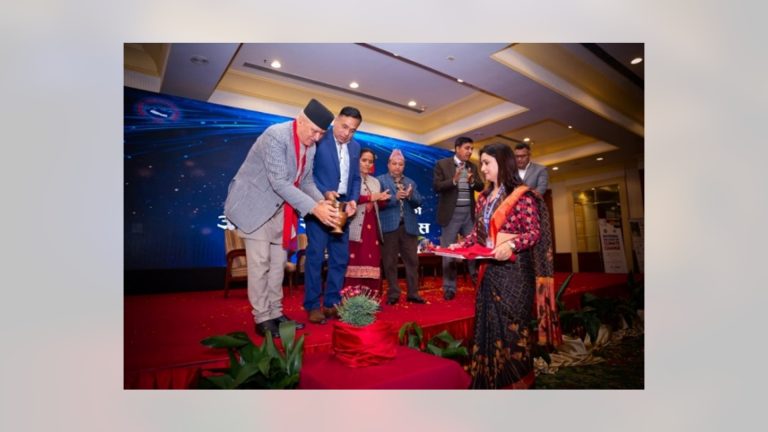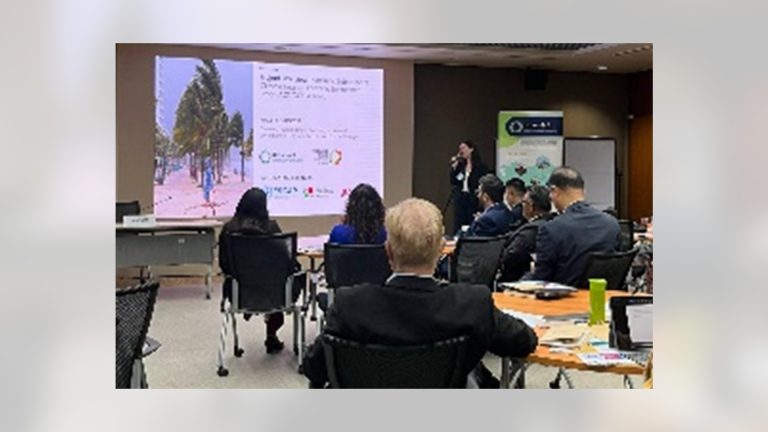4 December 2018 | WALING, Nepal – Many urban households in South Asia including Nepal still depend on on-site sanitation rather than sewers, with a growing trend of using septic tanks. This situation has disproportionately affected the poorest citizens with health and environmental problems.
According to the World Bank’s estimates, the cost of inadequate sanitation in South Asia is as high as US $65 billion, equivalent to 6% of the region’s GDP. Faecal Sludge Management (FSM) – which ranges from emptying faecal pits to treatment and disposal, is central to safely managed sanitation services, as called for by the Sustainable Development Goals No. 6.
Nepal is one of the first countries in South Asia that adopted a Faecal Sludge Management and Regulatory Framework in 2017. The Framework states that although the total basic sanitation coverage had reached 70% nationwide, the coverage in cities depends on households using pit latrine, improved latrine and septic tank latrine. Meanwhile, many cities have not had a systematic process of evacuating, collecting, transporting and managing faecal sludge from household septic tanks.
Untreated faecal sludge does not only pollute sources of ground and underground water. It can also cause adverse effects on public health and environment. On the contrary, if well managed, faecal sludge can be a source of energy and fertilizer. For these reasons, FSM has increasingly become a priority development agenda for national and local governments, as well as development partners.
In order to enhance the effectiveness of FSM, Wailing Municipality of Gandaki Province has joined UCLG ASPAC’s “Municipalities Network Advocacy in Sanitation in South Asia Programme”. Wailing is a hilly town, located in the western part of Nepal, and has recently won several recognitions of its achievements including: the best municipality of the nation award; the best municipality of Province 4 award; and the best place for solid waste management award.
On 4 December 2018, a Memorandum of Understanding (MoU) was signed to reaffirm Wailing’s collaboration with UCLG ASPAC and other project’s partners namely the Municipal Association of Nepal (MuAN) and the Environment and Public Health Organization (ENPHO). Speaking during the signing ceremony, Mayor of Wailing Municipality Dilip Pratap Khand announced that “with knowledge sharing and expertise transfer under this project, we hope to set an example by becoming more self-reliant on bio gas through proper and effective faecal sludge management.”
Apart from policy advisory service and capacity building, the project will conduct feasibility studies to all the 5 pilot municipalities covering samples of around 350 households to understand municipalities’ and communities’ economic capacity and market’s situation to develop the most suitable business model in order to improve access to financing options, through various funding mechanisms such as cooperation with banking sector, international development agencies or public-private partnership. MuAN’s Executive Secretary Kalanidhi Devkota stressed during the MoU signing ceremony that “There is a growing need to raise awareness on the importance of FSM, while convincing Municipalities to allocate more budget for it as it is directly related to public health. Under this project, we require participating municipalities to set aside at least 25% of sanitation budget to FSM in order to show their political will and commitment.
UCLG ASPAC’s “Municipalities Network Advocacy in Sanitation in South Asia” is being implemented in Nepal with MuAN and Environment & Public Health Organization (ENPHO) as its technical partner. In Bangladesh, the same UCLG ASPAC project is being implemented by Municipalities Association of Bangladesh (MAB) with SNV as its technical partner.











